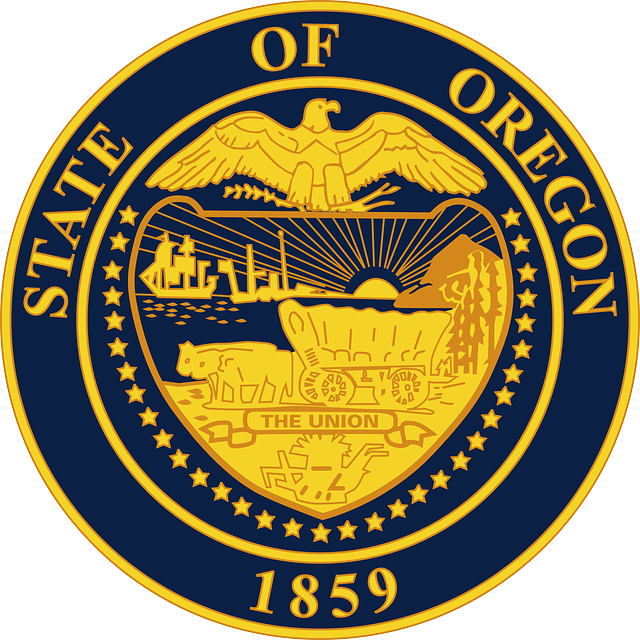In Oregon, grandparent rights are legally recognized, offering security for families and grandparents alike. In Lane County, these rights allow grandparents to maintain significant relationships with their grandchildren, even if they're not part of the primary household. The legal framework considers child welfare while fostering healthy family connections. Grandparents seeking advocacy must navigate state law, establish an established relationship, and file court petitions. Local advocates offer tailored legal guidance, emphasizing stability and continuity in a child's life. Understanding these rights and available resources is crucial for grandparents navigating complex family dynamics in Lane County advocacy efforts.
In Oregon, grandparent rights are a vital aspect of family law, offering legal protections for grandparents’ access and involvement in their grandchildren’s lives. This comprehensive guide delves into the intricate web of guidelines governing these rights, particularly focusing on Lane County’s legal framework. From understanding qualification criteria to navigating custody and visiting arrangements, we explore essential aspects. Additionally, we shed light on potential challenges, exceptions, and available advocacy resources for grandparents seeking support in Lane County.
- Understanding Grandparent Rights in Oregon: An Overview
- Lane County Legal Framework for Grandparent Access
- Who Qualifies as a Grandparent Under Oregon Law?
- Establishing Legal Custody and Visiting Rights
- Challenges and Exceptions to Grandparent Rights
- Advocacy Resources for Grandparents in Lane County
Understanding Grandparent Rights in Oregon: An Overview

In Oregon, grandparent rights are recognized and protected by law, offering a measure of security for families and grandparents alike. These rights allow grandparents to maintain a significant relationship with their grandchildren, even when they’re not part of the child’s primary household. Understanding these rights is crucial for those in Lane County seeking advocacy or guidance. Oregon’s guidelines provide a framework that ensures grandparent-grandchild connections can thrive while also considering the best interests of the child.
Grandparents’ visitation and custody rights are governed by specific laws, which vary from state to state. In Oregon, these rights are detailed in the Family Law Code, offering a clear path for grandparents to pursue legal action if their relationship with grandchildren is disrupted. Lane County residents should be aware that grandparent rights can cover various situations, including when parents are divorced or deceased, and they provide an avenue for grandparents to stay involved in their grandchildren’s lives.
Lane County Legal Framework for Grandparent Access

In Lane County, Oregon, the legal framework governing grandparent rights is designed to balance family relationships while ensuring the best interests of the child. Grandparents seeking access or visitation rights must navigate a series of considerations under state law. Key provisions highlight the need for active involvement in the child’s life and a demonstrated relationship with the grandchild. Lane County advocates for families often play a crucial role in guiding grandparents through this process, offering legal counsel tailored to their unique circumstances.
The county’s approach emphasizes the importance of stability and continuity in a child’s life. Grandparent rights are not automatic; they require a court order, typically sought through a petition. This formal process allows for an assessment of each case’s merits, taking into account factors such as the grandparent’s history with the child, the current family dynamics, and any potential impact on the child’s well-being. Effective Lane County legal advocacy can significantly influence the outcome, ensuring grandparents’ rights are protected while fostering a healthy relationship with their grandchild.
Who Qualifies as a Grandparent Under Oregon Law?

In Oregon, grandparent rights are recognized and protected by law, allowing qualified grandparents to maintain a significant relationship with their grandchildren. To qualify as a grandparent under Oregon Law, an individual must meet specific criteria. Generally, a person is considered a grandparent if they are the parent of a parent (a grandchild’s grandparent) or the parent’s spouse. This includes biological grandparents, step-grandparents, and adoptive grandparents.
Additionally, Lane County advocacy groups highlight that courts consider the best interests of the child when determining grandparent access. While there isn’t a strict definition of “grandparent,” the law emphasizes family connections and the benefits of maintaining relationships with extended family members. This is particularly significant for families in Lane County, where community support and legal resources can facilitate the navigation of grandparent rights guidelines.
Establishing Legal Custody and Visiting Rights

In Oregon, establishing legal custody and visiting rights is a crucial aspect of grandparent rights guidelines. According to state laws, grandparents who wish to have significant involvement in their grandchild’s life can petition for visitation or temporary custody. The court will consider the best interests of the child, as well as the ability of the grandparent to provide a stable and loving environment. Lane County advocacy groups play a vital role in assisting grandparents throughout this process, ensuring they understand their rights and have access to legal resources.
Grandparents seeking visitation or temporary custody must file a petition with the court, providing evidence of their relationship with the grandchild and their ability to care for the child. The court will then issue an order outlining specific visiting rights, which can include regular visitation schedules, holiday arrangements, and emergency provisions. It’s essential for grandparents in Lane County to stay informed about these guidelines and seek professional advice from advocacy groups to navigate the legal system effectively.
Challenges and Exceptions to Grandparent Rights

Grandparent rights in Oregon are generally protected and outlined by law, but there can be challenges and exceptions to these guidelines. One significant hurdle for grandparents is establishing a substantial relationship with their grandchildren. This means that regular visitation, involvement in the child’s life, and fostering a strong bond are crucial. In cases where parents are uncooperative or restrict access, Lane County advocacy groups play a vital role in assisting grandparents through legal processes to secure their rights.
Another exception relates to emergency circumstances. If a grandparent believes the child is in immediate danger or needs temporary care, they can petition the court for emergency custody. This allows for swift action while the long-term arrangements are being determined. These exceptions highlight the need for grandparents to be knowledgeable about their rights and the available resources, especially when navigating complex family dynamics.
Advocacy Resources for Grandparents in Lane County

In Lane County, grandparents seeking advice and support in navigating grandparent rights can find a wealth of resources dedicated to advocacy. Organizations like the Grandparents Rights Association of Oregon offer guidance, legal information, and networking opportunities tailored to the unique needs of grandparents. These groups provide an essential support system, helping to demystify the legal process and ensuring grandparents are equipped with the knowledge to advocate for their rights.
Local community centers and legal aid organizations also play a vital role in Lane County advocacy. They host workshops, seminars, and one-on-one counseling sessions, empowering grandparents to understand their legal standing and make informed decisions. With access to these resources, grandparents can confidently navigate the complexities of family law, ensuring their voices are heard and their rights protected.














